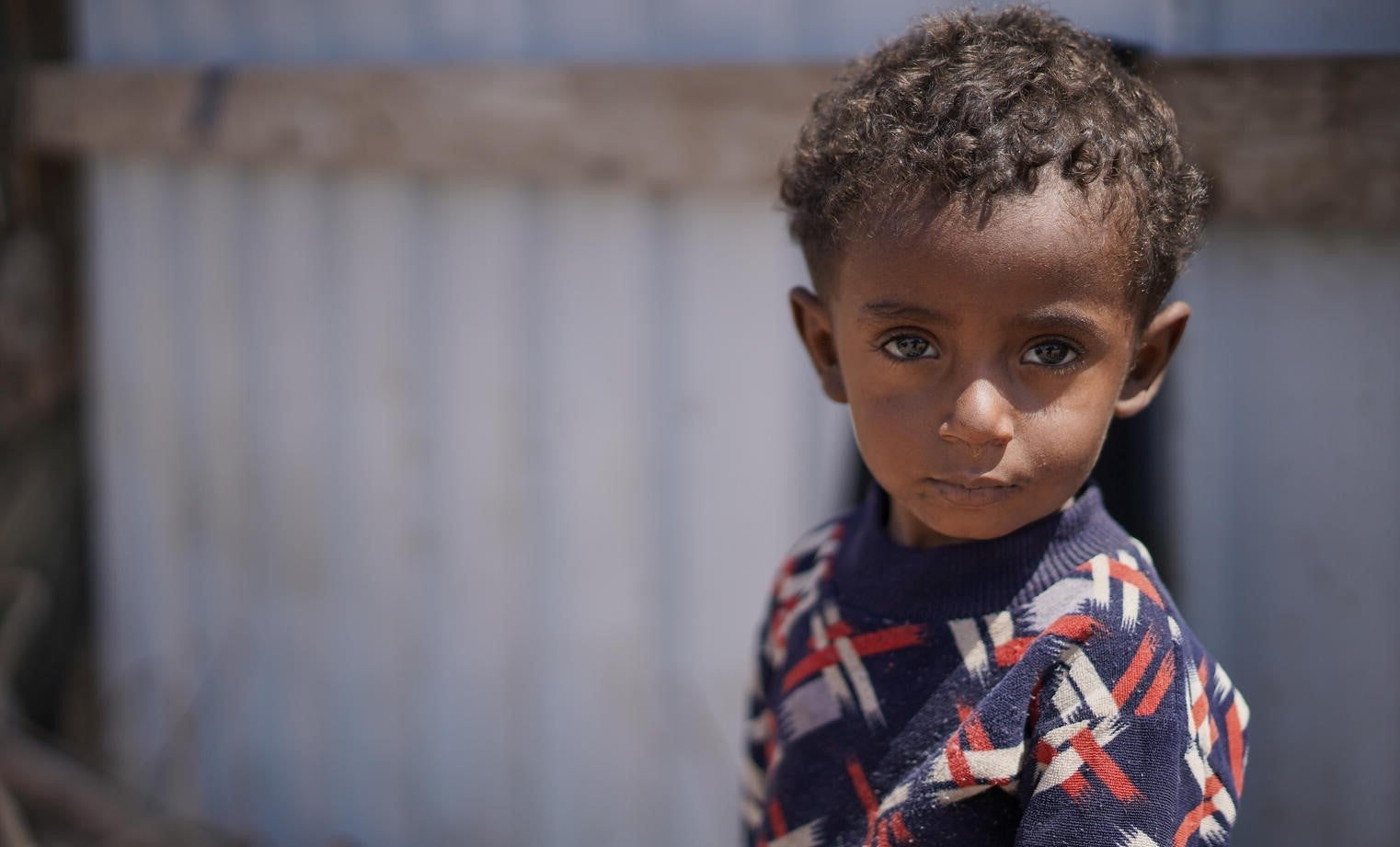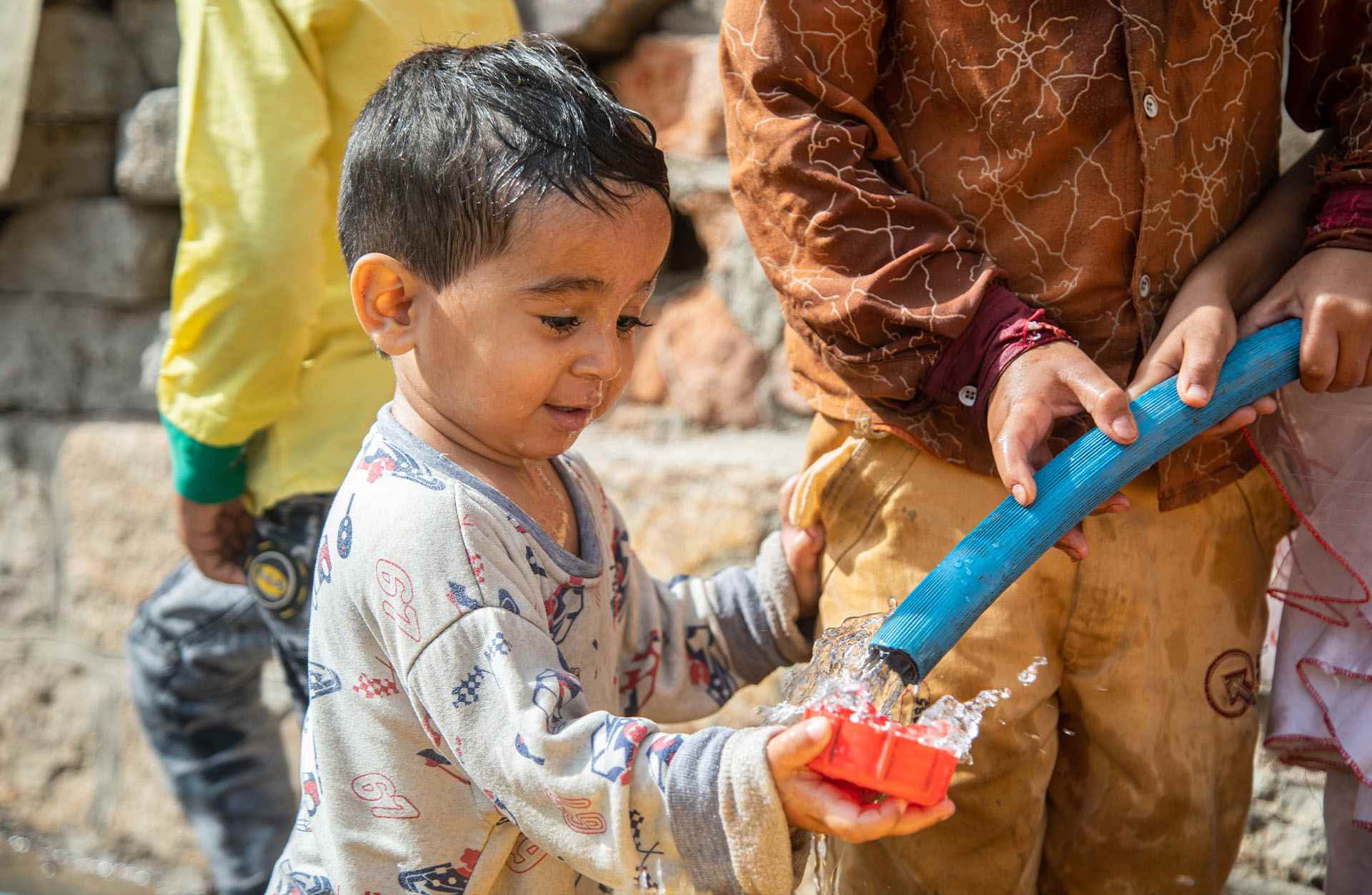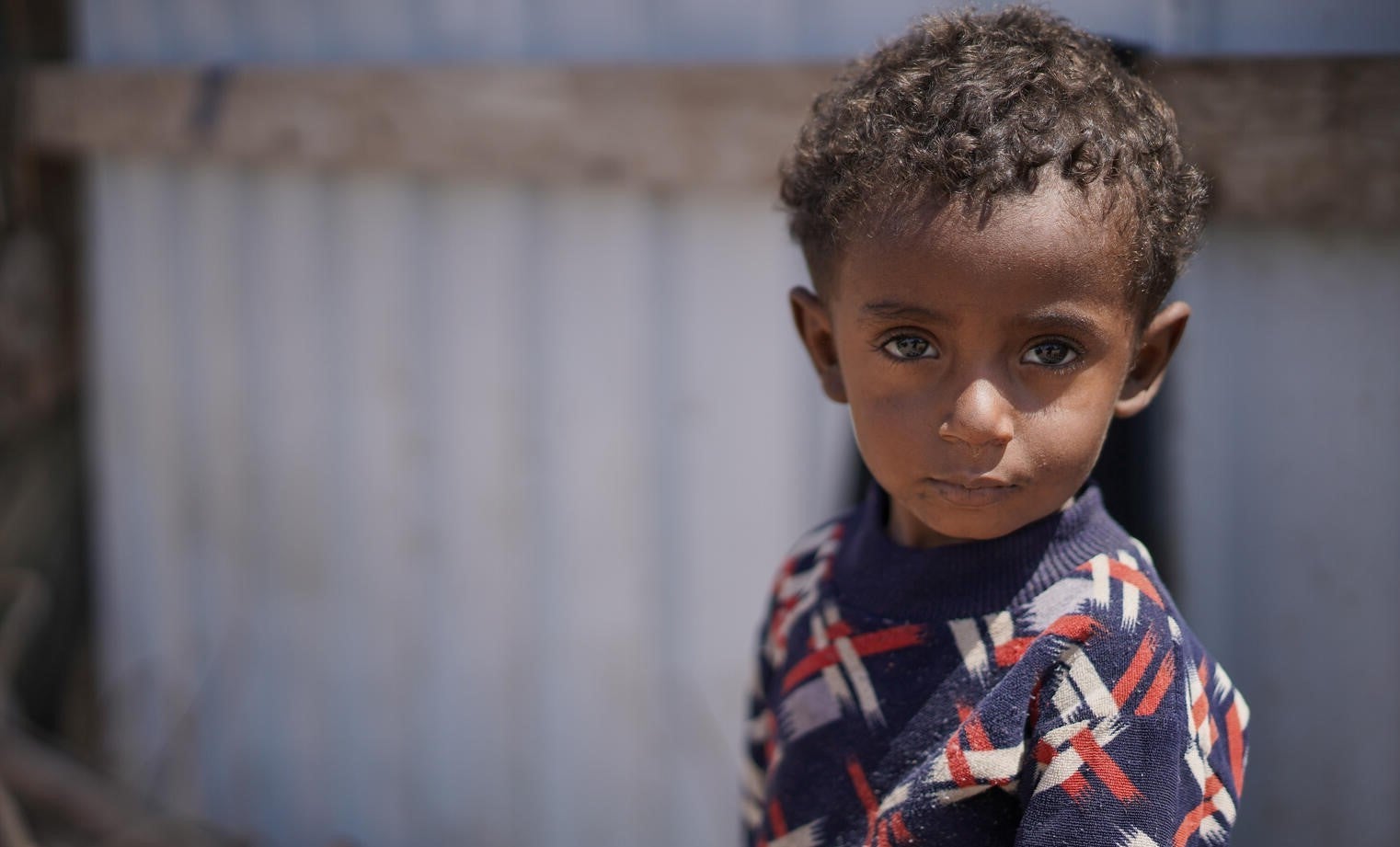Nine years of crushing conflict in Yemen leave nearly 4 out of 5 children in need of urgent humanitarian assistance.
In the Middle East, Yemen is experiencing an unrelenting humanitarian crisis that is devastating the lives of children. Today, 21.6 million people – nearly the same number as the entire population of Australia – need food, medical treatment, education, water and sanitation.
The conflict has also exacerbated the ongoing malnutrition crisis in Yemen. More than 2.2 million children are suffering from acute malnutrition, including over 540,000 children suffering from severe acute malnutrition - a life-threatening condition if not treated urgently.
UNICEF teams are on the ground working alongside our partners to deliver critical supplies and services. But we can’t do this without your help. Please support us to reach children and families in need.
Help children in Yemen
Children are in need. Help us provide urgent relief.
Yemen crisis: nine years in
It is nine years into the conflict in Yemen, and the situation is only getting worse. Children in Yemen face incredible threats to their survival. There have been 690 attacks and military use of educational facilities. Only 50 per cent of health facilities are functional, of which those that are operating face severe shortages of medicine, equipment and staff. Fuel shortages are driving up the prices of food and other necessities, and families are struggling to make ends meet.
"Yemen has become a living hell for children. Millions of parents don’t know if their children will survive from one day to the next."
More than 11,720 children have been killed or injured since the beginning of the conflict, and 4,100 children have been recruited into the conflict. The actual number is likely to be much higher. An estimated 2.3 million children are internally displaced, and more than 2.7 million children are out of school.
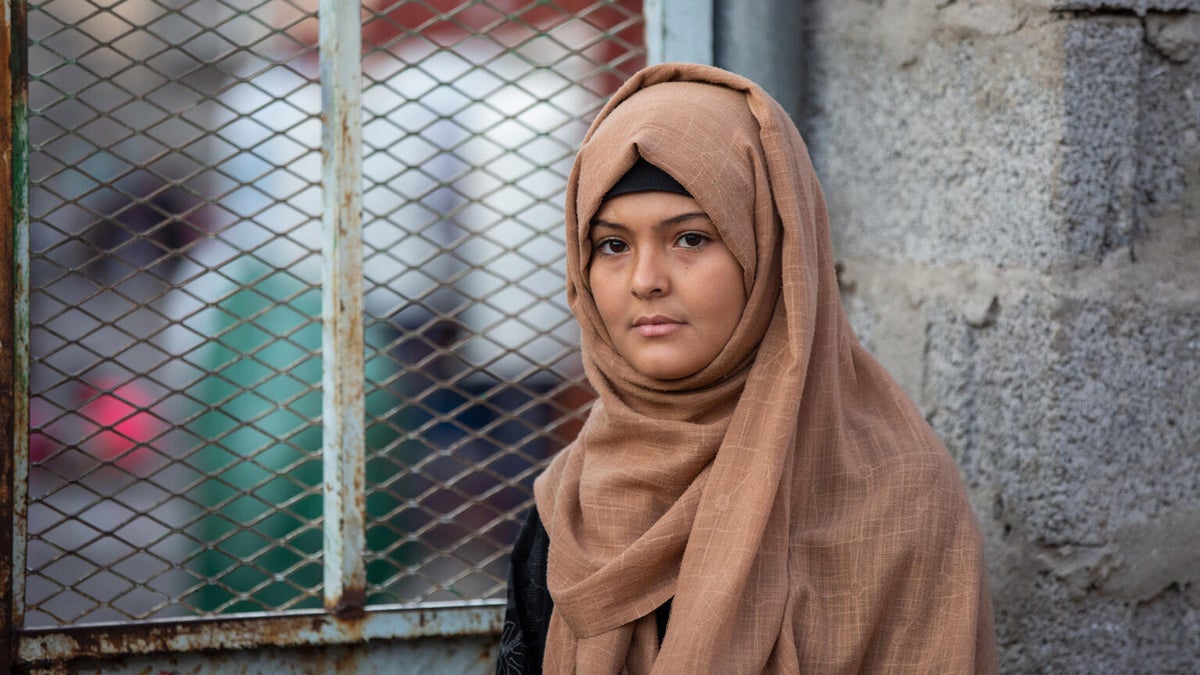
Yemen has become a living hell for children
Help children in Yemen
Children are in need. Help us provide urgent relief.
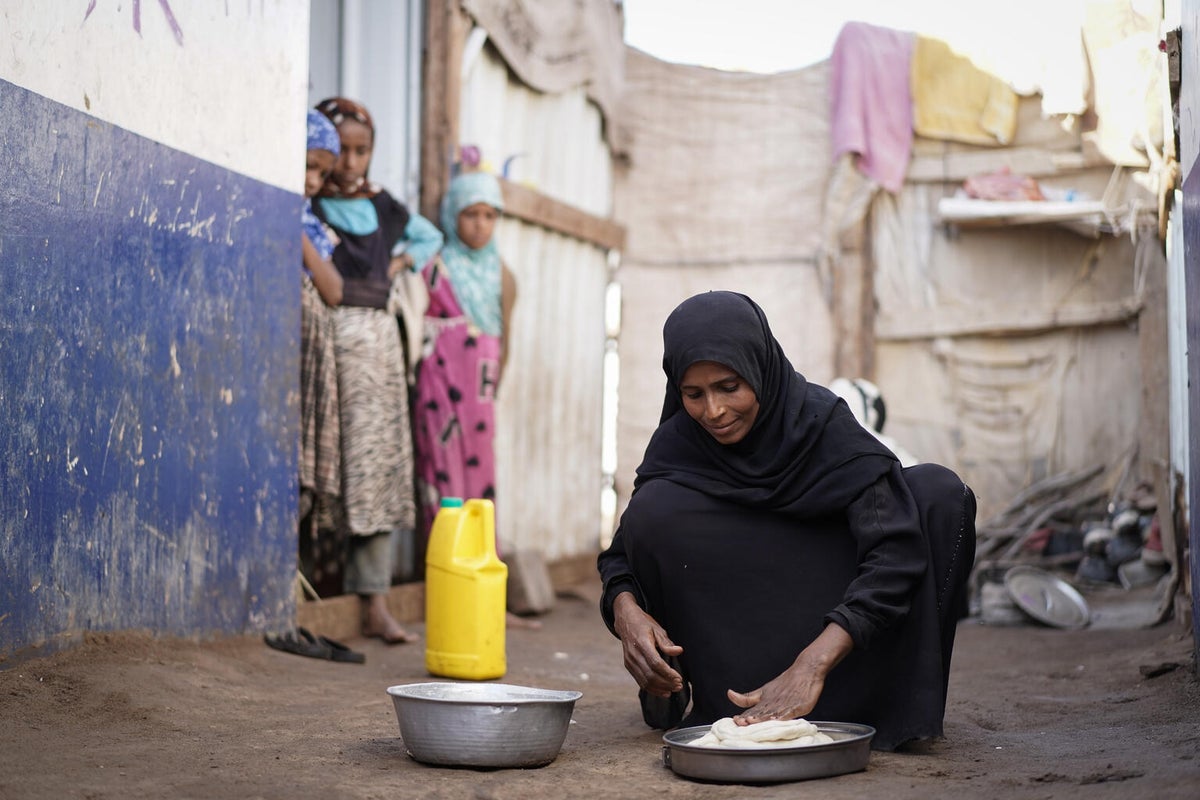
Yemen’s hunger crisis is verging on catastrophe.
A mother of four children, Aml prepares dough to make bread as two of her children and a niece look on.
Due to ongoing conflict, Aml and her family were displaced and now live at an Internally Displaced People’s camps. Aml lost one of her children to malnutrition, and she lives in constant fear of losing her other children.
“I have been suffering from malnutrition for almost a year,” says Aml. “I have a stomach ache, and I always faint. Also, I cannot carry a lot of things for a long distance. I had a child who was suffering from malnutrition, and he passed away. Now, when I see my daughter is weak, I feel afraid that the same thing that happened to her brother will happen to her, and then of losing her while she is the only daughter I have.”
In 2022, UNICEF supported the treatment of severe acute malnutrition for more than 375,000 children in 4,584 primary health care facilities and 34 therapeutic feeding centres.
UNICEF is working across Yemen every day to reach children and their families. You can help by making a lifesaving donation today.
Help children in Yemen
Children are in need. Help us provide urgent relief.
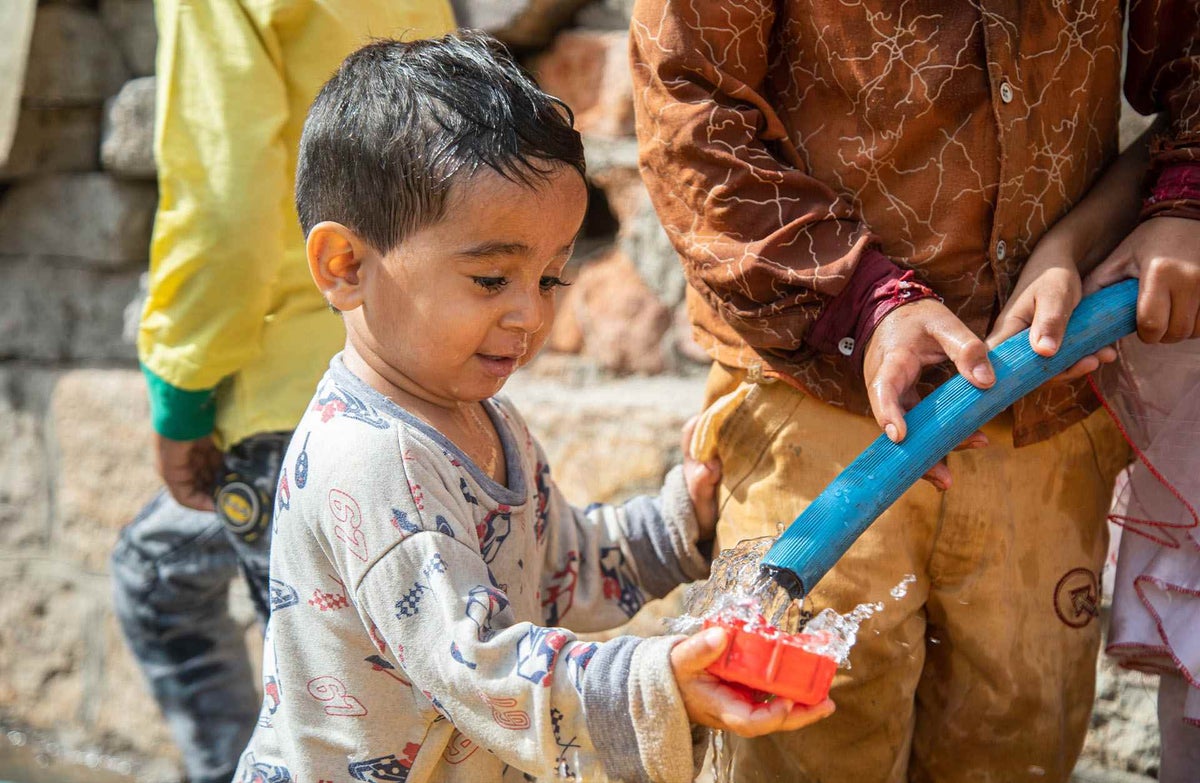
UNICEF is one of the few international agencies on the ground in Yemen and our teams are working hard to save the lives of children. But we urgently need your help.
$95
Could help to provide 80 exercise books and 1,000 pencils so children in Yemen can continue their education.
8 m
Nearly 8 million children are at risk of waterborne diseases and in need of support.
"After 8 years, many children and families feel stuck in a perpetual cycle of hopelessness. Visiting a family recently who have been displaced from their homes for over seven years, you realise that for too many families, little of their situation has changed beyond the children’s faces. Children have grown up knowing little but conflict, providing these children with some room for hope of a peaceful future is absolutely critical."
How will my donation help children?
UNICEF is racing to help as many children as we can, as quickly as possible. We are providing children caught in Yemen’s violent conflict with emergency nutrition, clean water, sanitation facilities, vaccines, medicine and much needed medical kits. We’re also working hard to keep children in school by distributing school supplies and rehabilitating schools.
Your donation to our Yemen crisis appeal will help us:
- Provide emergency nutrition and medical treatment to children and families in conflict zones.
- Scale up our water, hygiene and sanitation response to reach more children with clean and safe water.
- Deliver urgently needed vaccines, hygiene kits and communal water tanks to internally displaced communities.
- Reach children with education and early learning.

- 80¢on average, 80 cents to every dollar spent for the past three years went directly to helping children in need, including long-term programs, emergency response and community education.
- 20¢on average, 14 cents to every dollar spent for the past three years went to essential fundraising costs that helped us generate more impact for children, 6 cents went to admin costs, such as keeping your personal data safe.
How do we use each dollar donated?
Your gift will support children impacted by this emergency, and crisis around the world. If you choose to donate monthly or should we receive more funds than is needed for this emergency, your gift will support UNICEF's work where the need is greatest. Find out more about our financial management in our annual report.
Help children in Yemen
Children are in need. Help us provide urgent relief.


